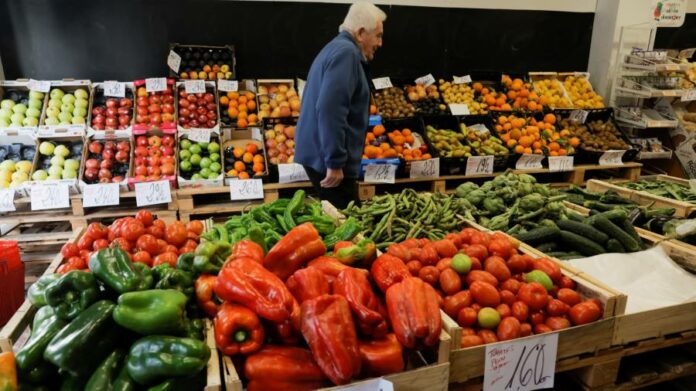Spanish inflation slowed more than expected in December, raising expectations of an easing in price pressures across the eurozone.
Spanish consumer prices rose by 5.8 per cent in the year to this month, according to preliminary figures published by the national statistics office on Friday. The figure was down from 6.8 per cent in the previous month and a sharper fall than economists had forecast.
The Spanish data are the first December inflation figures for a eurozone member state. If similar falls occur elsewhere, then policymakers at the European Central Bank could opt to lower the pace of rate increases more quickly than markets expect.
German data are out on Tuesday and are expected to show inflation slowing from 10 per cent to 9 per cent. Italian price pressures are also expected to have moderated, while figures for the eurozone as a whole are forecast to show inflation returning to single digits. Economists predict a fall to 9.7 per cent in December from 10.1 per cent in the previous month when data for the single currency area are out next Friday.
Though headline inflation is now falling in several major economies, underlying price pressures continue to linger. Core inflation in Spain — a measure which excludes energy and food inflation — accelerated to 6.9 per cent in December from 6.3 per cent in the previous month and the highest since records began in 2003.
“Services prices will continue showing robust monthly dynamics, keeping core eurozone inflation close to the 2022 highs,” said Iaroslav Shelepko, economist at Barclays, adding that he expected “growing divergence” between headline and core measures as a “theme” for 2023.
Faced with the highest inflation on record, the ECB raised rates by 2.5 percentage points over the course of 2022, from minus 0.5 to 2 per cent. Inflation hit a peak of 10.6 per cent in October.
The ECB’s governing council next meets to set policy on February 2. Christine Lagarde, ECB president, hinted after rate-setters’ December vote that a half-point rise in borrowing costs was likely. However, sharper than expected falls in inflation would raise the chances of the ECB switching to quarter-point rises early next year.
The Spanish reading was lower than the 6 per cent forecast by economists polled by Reuters and marked the fifth consecutive decline from a peak of 10.8 per cent registered in July.
Nadia Calviño, Spain’s deputy prime minister and economy minister, celebrated the data as “very positive”, noting that Spain’s inflation rate had now dropped by 5 percentage points in five months. “There may be upticks, but the trend is for inflation to continue to fall in 2023,” she told Cadena Ser radio.
Spain has taken several steps to limit the rise in energy costs this year, including the so-called “Iberian exception” that decoupled the price of electricity from that of gas by capping the wholesale costs for gas paid by power generators.
Madrid also introduced a blanket fuel subsidy that reduced petrol and diesel prices by €0.20 per litre, although it is due to expire on December 31 and will be available only to business consumers from next year.
Calviño said: “All the measures we’ve put in place are aimed at containing the rise in prices and we see that they are proving to be effective. The fall in energy is the fundamental factor that explains why inflation is falling.”
The country has also benefited from its historically low dependence on Russian gas compared with Germany and other parts of northern Europe.
In a new €10bn package of measures to ease the cost of living, Spain’s Socialist prime minister Pedro Sánchez this week announced a cut in sales tax from 4 per cent to zero for basic foods including bread, milk, cheese, fruit and vegetables.
Calviño described the measures as sending “a very powerful measure” that would keep the cost of everyday staples in check.
The package included a one-off payment of €200 for some 4mn households and was the third round of support announced this year, taking the combined cost for the government to €45bn.






